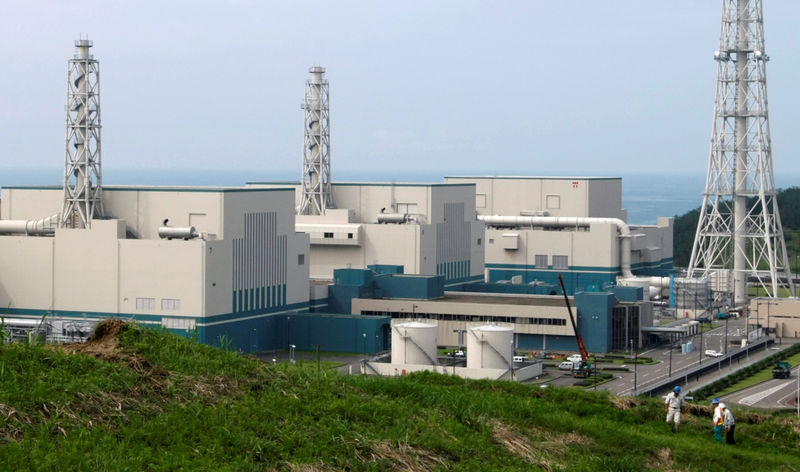By Osamu Tsukimori and Aaron Sheldrick
TOKYO (Reuters) - Tokyo Electric Power (Tepco) (T:9501) on Wednesday received an initial safety approval from Japan's Nuclear Regulation Authority (NRA) to restart two reactors at the world's biggest nuclear power plant.
An NRA vote on Wednesday marks the first safety approvals Tepco has received as it tries to restart some reactors for the first time since the 2011 meltdown of three units at its Fukushima plant following an earthquake and tsunami.
The Fukushima meltdown was the world's worst nuclear accident since Russia's Chernobyl disaster and led to the eventual closure of all of Japan's nuclear power plants.
The NRA ruled the No. 6 and No. 7 reactors at the Kashiwazaki-Kariwa nuclear plant, each with a capacity of 1,356 megawatts, have passed safety standards enacted after the Fukushima incident. The NRA gave the approval in a unanimous voice vote among five commissioners at a meeting on Wednesday.
Tepco has said it needs to resume operations at the closed Kashiwazaki-Kariwa plant to pay for Fukushima's restoration and other liabilities from the 2011 disaster.
The formal safety approval will come after a 30-day public comment period. Tepco also still needs to clear other hurdles like having a detailed construction design for planned upgrades approved.
Even with the NRA safety approvals, the restart of reactors at Kashiwazaki-Kariwa are still likely years away.
Ryuichi Yoneyama, the governor of Niigata prefecture, where the plant is located, has said he will not discuss a restart at Kashiwazaki-Kariwa until the prefecture completes a review of the Fukushima disaster, and that could take until 2020 at the earliest.
The Japanese public is also opposed to restarts and a majority favours an exit from nuclear power, according to opinion polls.
Tepco shares ended unchanged on Wednesday after gaining as much as 3 percent after news of the approval.
Nuclear power may become an issue during campaigning for a snap election that Prime Minister Shinzo Abe called last week.
Abe's Liberal Democratic Party supports restarts but a new party led by the popular governor of Tokyo, Yuriko Koike, is calling for nuclear power to be phased out, which threatens more trouble for an industry that has struggled ever since Fukushima.
"Tepco's plant may not restart for long if the governor sticks to his stance," said Tomomichi Akuta, senior economist at Mitsubishi UFJ Research and Consulting in Tokyo.

A go-ahead would be the first approval for reactors of the same basic design as those that melted down at the Fukushima Daiichi station in March 2011. Radiation from Fukushima forced 160,000 people from their homes, many never to return, and destroyed businesses, fisheries and agriculture. The latest government estimate puts the cost of the disaster at 21.5 trillion yen (£143 billion).